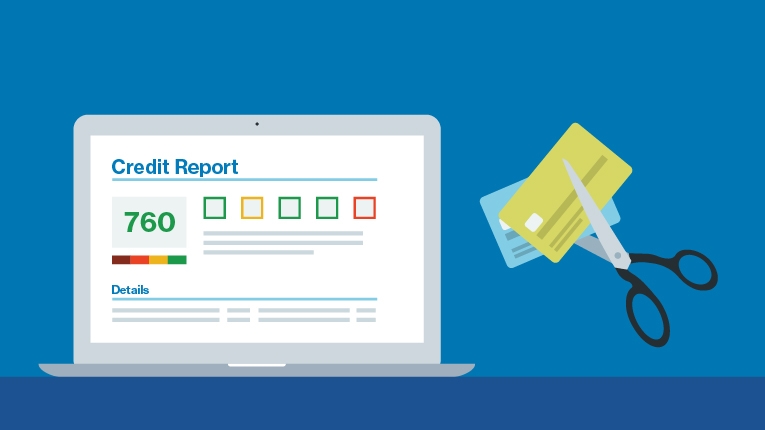How to refinance your car loan with poor credit

If your credit isn’t so hot, you may not be able to qualify for auto loan refinancing as easily as someone with average or excellent credit—and you could face high interest rates. Refinancing may be possible with poor credit, but it’s important to consider if it makes financial sense before ditching your current loan.[1] Let’s take a closer look at how to refinance your car with poor credit.
Can you refinance a car loan with bad credit?
Refinancing an auto loan with less-than-perfect credit is possible. If you have poor credit, it may be better to stick with your current loan. Some lenders offer refinancing loans to people with bad credit, such as a FICO® score below 580, and make it easy to get approved.[2] However, such lenders may be predatory and target people with poor credit. The loans usually have very high interest rates, fees, and large monthly payments—which can put you in a cycle of debt.[3]
Still, if your credit score has improved since you first took out the loan or market rates have come down, shopping around can’t hurt. If you find your credit is still too low to qualify for an affordable rate, you can take steps to improve your creditworthiness and overall financial situation before you apply.[1]
How to refinance a car loan if you have poor credit
While there’s no guarantee you’ll be approved for a refinance auto loan with poor credit, some lenders offer competitive interest rates and flexible eligibility criteria. Here are a few things to consider when refinancing a car loan with a low credit score.
Step 1: Know your credit situation
Generally, the higher your credit score, the lower your interest rate. Check your credit reports regularly to keep tabs on your scores and look for inaccuracies. You can also request free copies of your credit reports from each of the three major credit bureaus—Equifax, Experian, and TransUnion—once a week at AnnualCreditReport.com. Consider using a credit monitoring service to keep tabs on your credit regularly. Review your reports for accuracy, and if anything looks off, be sure to dispute the accuracy.[1]
Step 2: Understand lender requirements
Once you know your score, research lender minimum score requirements. Many lenders share their required credit score range or minimum required credit score in their online FAQs. If your score is too low to qualify with most auto refinancing lenders, consider taking steps to build your credit. Watch out for lenders that advertise loan options for people with “bad credit” or “subprime” scores. While your score may qualify, these loans usually come with very high interest rates and fees.[3]
Step 3: Reach out to your current lender
Ask your current lender about refinancing options. If your credit score has improved or you’ve made a few on-time payments in a row, your lender could be willing to do what it takes to keep your business. Not all lenders refinance their own auto loans, though, so even if your financial situation is solid, you may still need to go elsewhere.
Step 4: Compare lenders
You should be able to check your rate for auto refinance loans through several lenders without doing more damage to your score. Shop around for lenders, like LendingClub Bank, that allow you to check your rate with just a soft credit inquiry—meaning no ding to your score. Once you find a few options that look like a good fit, you can submit your applications.[4]
Be sure to do this in a short time period as applying for auto refinancing typically results in a hard credit pull. However, most credit scoring models count multiple loan inquiries as one if they’re done within a short time frame, so feel free to apply at multiple banks, credit unions, or online lenders.[4]
Compare loan offers carefully. Be sure to read the fine print about your rates, payment terms, and fees. It’s also important to make sure your car is eligible, as some lenders put restrictions on details like mileage and time left on the original loan.
Step 5: Accept an auto loan refinance offer
If you find an offer that works for your budget and financial situation, accept the offer and complete any paperwork. If you use an online auto refinancing lender, like LendingClub Bank, your old loan is usually paid electronically using funds from the new loan. To avoid any gaps in your payment history, continue to make payments on your existing loan until you receive confirmation it’s been paid off. Be sure to also make note of your new loan’s first payment date, as payments begin right away when you refinance.[1]
When is the best time to refinance your loan?
Timing matters when refinancing an auto loan—especially if you have less-than-perfect credit. If your credit situation has changed or market rates have come down, it makes sense to refinance. However, sometimes it’s not the right time to refinance, like if you’re upside down on your car loan or interest rates have gone up. Let’s take a closer look at times when it may make sense to refinance an auto loan and when you may be better off sticking with your existing auto loan.
When it makes sense
Some common situations when it’s typically a good time to refinance your auto loan include:
Your credit score has improved since you took out the loan. Even if your credit score is less than stellar, having a slightly better score than when you first took out your auto loan could help you get a better rate if you refinance.[1]
You want to add or remove a cosigner. Adding a personal loan cosigner with better credit than yours can help lower your rate. Or you may be ready to remove the cosigner you needed when you first got the loan.[1]
You want a lower monthly payment. Refinancing an auto loan can help get you more affordable payments. Keep in mind your new lower payments may be spread over a longer repayment period than your original loan, which increases your total interest costs.[1]
You didn’t get the best rate. If you got your loan at the dealer, chances are you’re paying more interest than some of the auto refinance options out there.[1]
Lower interest rates available. Market rates may have come down since you first got your loan. Even a small difference can make a big dent in what you’ll need to pay throughout the lifetime of your loan.[1]
When you should wait
Refinancing an auto loan doesn’t always make sense. Here are some common reasons you may want to hold off:
The interest rate is too high. Ideally, you want a lower interest rate when you refinance an auto loan. So if your credit score has gone down or rates have gone up, you may want to hold off.[1]
You owe more than your car’s worth. If you financed the vehicle and you’re now upside down on your loan—meaning the balance on the loan is higher than your vehicle’s value—refinancing usually isn’t a good idea.[5]
You have to pay an origination fee. Lenders sometimes deduct an origination fee when you take out an auto refinance loan. It’s usually a percentage of the new loan amount—meaning you may not have enough loan proceeds to pay off your existing loan.
Your current loan has a repayment fee. Some auto lenders charge a fee if you pay off your loan early. If this fee costs more than what you’d save by refinancing, it may make sense to stick with your current loan.[6]
You don’t want to affect your credit. Lenders usually perform a hard inquiry when you refinance an auto loan, so your credit score will dip a few points. The impact is temporary, but if your credit is already poor, you may not want to hurt your score.
The bottom line
Refinancing an auto loan with bad credit isn’t the easiest, but it can be done. Still, it may not always be the best choice, especially if you’re worried about higher rates or monthly payments. If it’s not the right time, work on improving your credit. This includes consistently making payments on your current loan to help build a positive payment history.
If you can’t afford to make your auto payment, talk to your lender about options to modify the terms of the current loan. The company may also have options to help you catch up on payments. Or, if you need to get out of the loan altogether, consider trading in or selling the vehicle.
Consumer Financial Protection Bureau. “What should I know before I shop for a car or auto loan?”
Experian. “What is a good credit score?”
Federal Trade Commission Consumer Advice. “Auto loan refinancing scams.”
Consumer Financial Protection Bureau. “What’s a credit inquiry?
Federal Trade Commission Consumer Advice. “Auto Trade-Ins and Negative Equity: When You Owe More than Your Car is Worth”
Consumer Financial Protection Bureau. “Can I prepay my loan at any time without penalty?”




